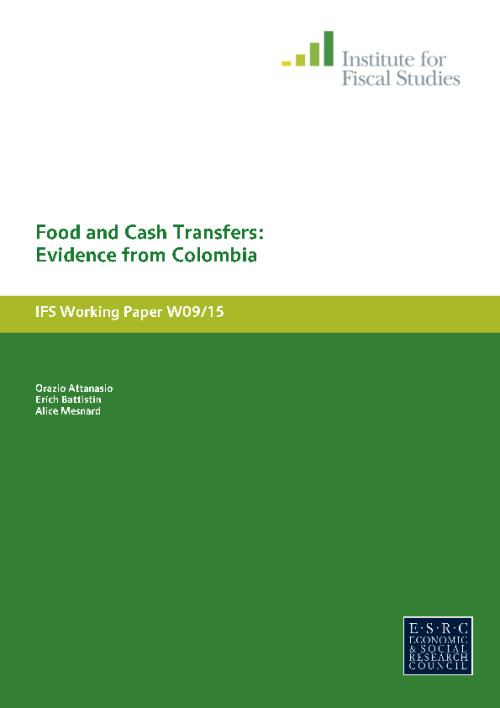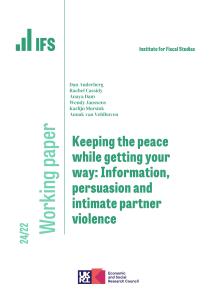Downloads

wp0915.pdf
PDF | 778.29 KB
We study food Engel curves among the poor population targeted by a conditional cash transfer programme in Colombia. After controlling for the endogeneity of total expenditure and for the (unobserved) variability of prices across villages, the best fit is provided by a log-linear specification. Our estimates imply that an increase in total expenditure by 10% would lead to a decrease of 1% in the share of food. However, quasi-experimental estimates of the impact of the programme on total and food consumption show that the share of food increases, suggesting that the programme has more complex impacts than increasing household income. In particular, our results are not inconsistent with the hypothesis that the programme, targeted to women, could increase their bargaining power and induce a more than proportional increase in food consumption.
Authors

CPP Co-Director
Orazio is an International Research Fellow at the IFS, a Professor at Yale and a Research Associate at the National Bureau of Economic Research.

Erich Battistin

Alice Mesnard
Working Paper details
- DOI
- 10.1920/wp.ifs.2009.0915
- Publisher
- IFS
Suggested citation
O, Attanasio and E, Battistin and A, Mesnard. (2009). Food and cash transfers: evidence from Colombia. London: IFS. Available at: https://ifs.org.uk/publications/food-and-cash-transfers-evidence-colombia (accessed: 20 May 2024).
More from IFS
Understand this issue

If you can’t see it, you can’t be it: role models influence female junior doctors’ choice of medical specialty
24 April 2024

The £600 billion problem awaiting the next government
25 April 2024

A mess has been made of Child Benefit, and the clear-up operation may not be easy
29 March 2024
Policy analysis

Recent trends in and the outlook for health-related benefits
19 April 2024

The past and future of UK health spending
14 May 2024

NHS spending has risen less quickly than was planned at the last election, despite the pandemic and record waiting lists
14 May 2024
Academic research

Forced displacement, mental health, and child development: Evidence from Rohingya refugees
10 May 2024

The role of hospital networks in individual mortality
13 May 2024

Keeping the peace whilst getting your way: Information, persuasion and intimate partner violence
17 May 2024